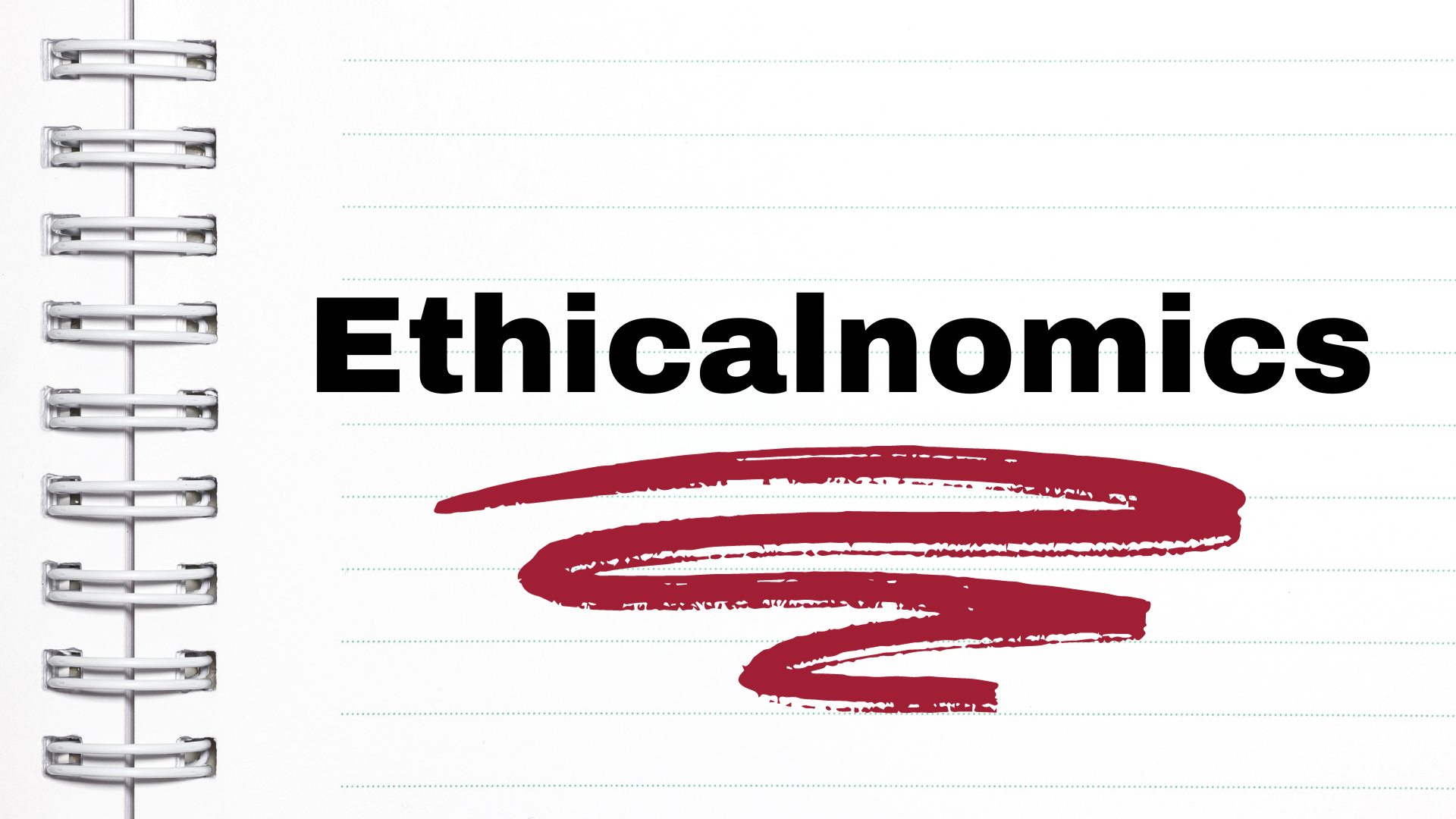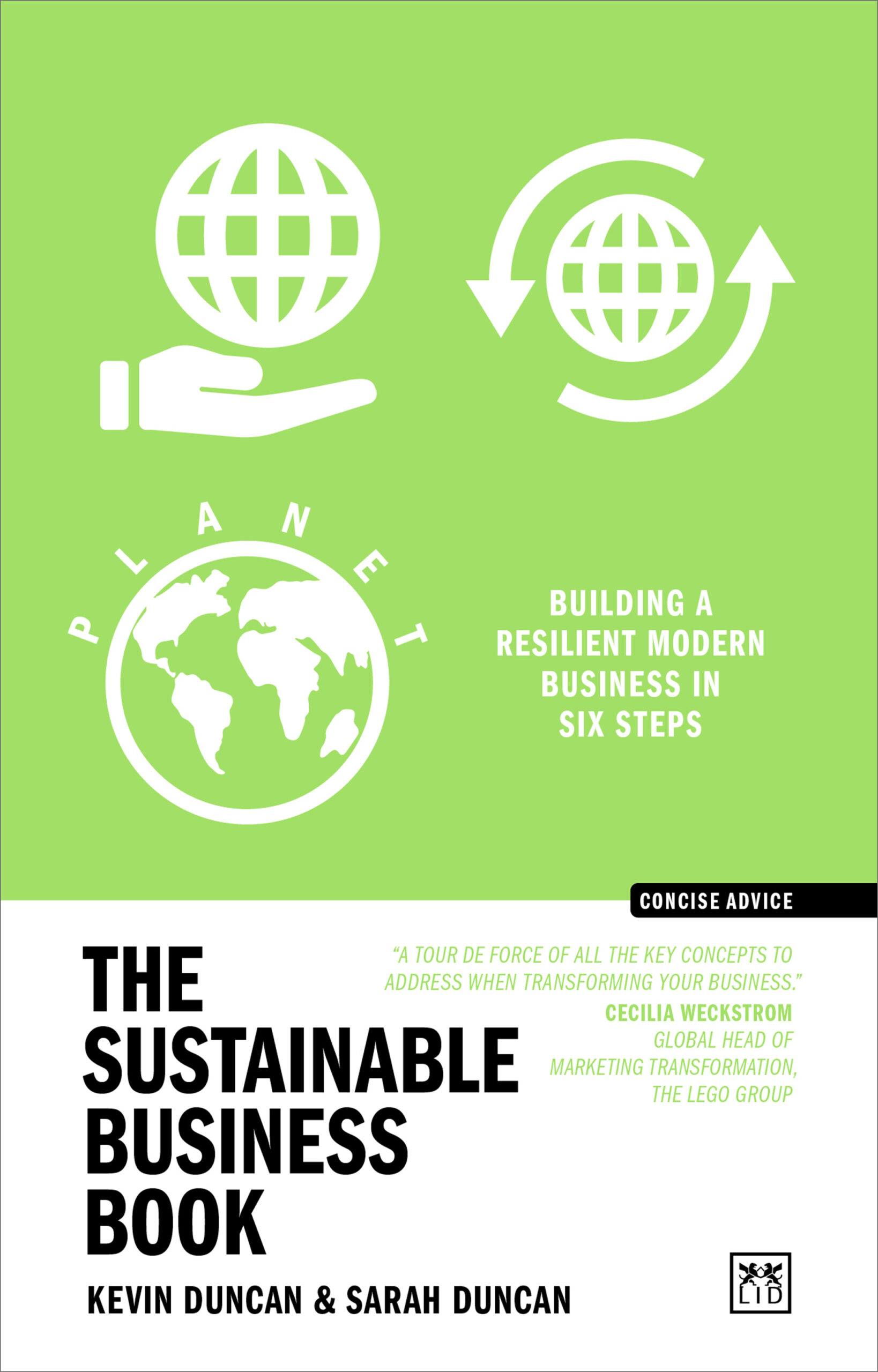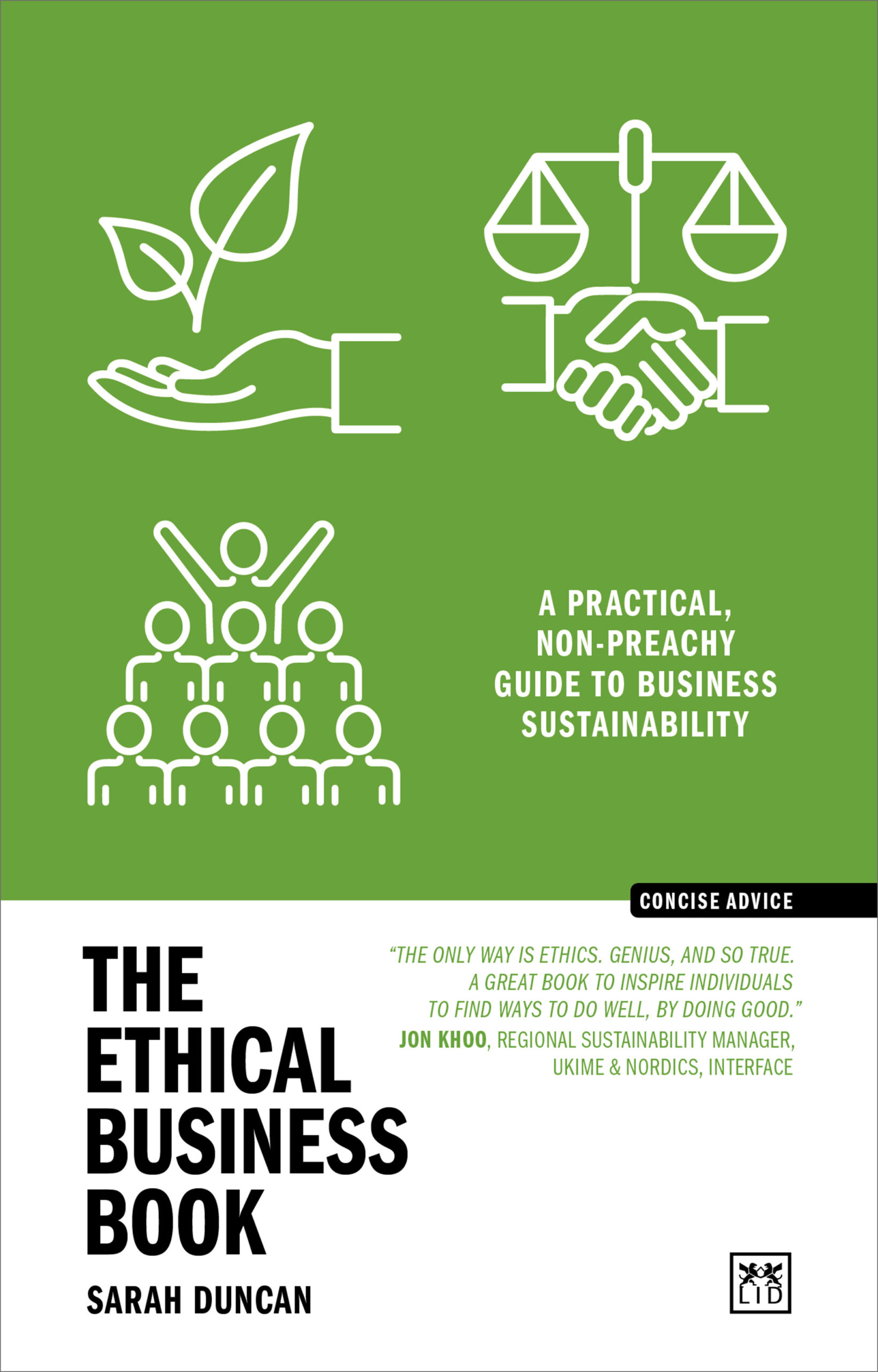|
From ESG to Ethicalnomics
From ESG to Ethicalnomics

By Guest Contributors Kevin Duncan & Sarah Duncan
Authors of The Sustainable Business Book, Kevin Duncan and Sarah Duncan, comment on how debating the semantics of an acronym like ESG prevents us from doing the serious part – improving business.
Introduction
Isn’t it interesting how short a space of time it takes for words and phrases to change their meaning? Just a few years ago ESG (Environmental Social Governance) was heralded by many as the new, all-embracing version of Sustainability. A lot of people had come to interpret Sustainability as ‘just the green stuff,’ so this transition felt helpful. But from its well-intentioned beginnings aiming to give greater balance to social and governance elements, it has now come under fire from a range of sources.
In financial services, for example, criticisms include that ESG investing doesn’t make any difference, that data and indices on which these investment decisions are made are not fit for purpose, and that the entire sector is rife with greenwashing.
In American politics, this has taken a much broader and more cynical turn, with various high-profile figures claiming that the proliferation of ESG throughout the country is a direct threat to the economy, individual economic freedom, and even the American way of life. That’s quite a claim.
On a smaller scale, in boardrooms and meetings, it is interesting to observe how executives use language to try to outsmart colleagues, hide behind words and phrases, put up barriers, exercise one-upmanship, and provide a backdrop for inaction. If you can’t decide whether to call it sustainability or ESG, then how can you even get on to the serious part – improving your business?
Language as a barrier
So we thought that now would be a good time to review the topic, and the words used to describe it. When Sarah first wrote The Ethical Business Book in 2018, she pointed out that this is a complex and sometimes confusing subject area, starting with these definitions from the Cambridge dictionary:
Ethical: relating to beliefs about what is morally right and wrong.
Moral: relating to the standards of good or bad behaviour, fairness, honesty, etc. that each person believes in, rather than to laws.
Sustainable: able to continue over a period of time. In relation to the environment: causing little or no damage to the environment and therefore able to continue for a long time.
At the time, we used the word ethical as an overarching term that covers better all-round behaviour in a corporate sense, promoting best practices, not necessarily following mandated legal requirements. Whether you choose to use the word ethical or sustainable, the important point is that when you review your corporate actions you consider not only your impact on the planet, but also on society.
From CSR to Sustainability
The book pointed out that CSR had moved on. Corporate Social Responsibility (CSR) is part of a strategy where a company generates its profits without too much consideration for wider societal expectations.
Once the profit is generated however, the company then distributes some of the value created to projects, activities and causes that are important to stakeholders. Ethical behaviour in this model is therefore ‘bolted on’.
We described New Business Ethics like this:
Modern ethical businesses promote responsible behaviour as an opportunity to generate profits while at the same time living up to expectations of society. Rather than unilaterally dishing out money, they work with stakeholders to understand their interests and expectations. Ethical and sustainable behaviour for these companies is integral, or ‘built in’ to their core business, and the transition is captured in this graphic.
From Sustainability to ESG
In other words, forward-thinking, sustainable businesses moved on from CSR to harness responsible behaviour as an integral part of generating profit. Ethical behaviour for these companies is therefore built into the core of the business. This new approach builds moral purpose into the company at the beginning of the financial year, not the end.
By the time we wrote The Sustainable Business Book in March 2023, we observed that the term ESG had now widely taken over from CSR. And yet the terms ESG and sustainability now seem to have become broadly interchangeable. Many people still associate sustainability more with environmental matters or a green agenda, but, as we continue to reiterate, sustainable development covers the planet and people.
We pointed out that we don’t think it matters which term you use and predicted that ESG would no doubt evolve into some other trending acronym. We still advocate that people should avoid getting tied up by word definitions rather than getting on with improving their company’s business operations.
Ultimately, it’s about how your actions, products or services contribute to (or detract from) a healthy planet and a healthy society. Sustainability in the true sense of the word means ‘to endure.’ We arrived at this definition of business sustainability:
The creation or reengineering of a company to be successful while doing as little harm as possible. This is not just ‘the environmental stuff.’ It means looking after people and acknowledging societal issues, such as social injustice and inequality, as well as prioritizing the decarbonization of business operations, reducing waste, and preserving and replenishing natural resources.
Trends in business language
In one respect, it doesn’t matter what you call something, so long as everyone knows what you mean. But with a complicated topic such as ESG, that isn’t completely true. Let’s look first at the linguistic journey that the subject has been on.*

Does it all mean the same thing? Yes and no. Yes if you are getting on with suitable initiatives without allowing quibbling about semantics to get in the way of forward motion. And no if you have a vested interest in making words mean only the things you want, and not the things you don’t. Or, even more exploitatively, you just want to make money out of it. Experienced readers may remember some of these other evolutions in business language:

Not to mention sales morphing into marketing, and all products seemingly becoming services. As we can see, unless the moral centre of gravity stays intact, any of these fads can transmogrify into something that it was never intended to be.
The rise of linguistic cynicism
And so we arrive at an inflection point whereby ESG, an acronym we would like to believe was coined with the best of intentions, has come under fire from various cynical observers and been deliberately twisted by others. And yet, at face value, it is not a complicated concept.
Environmental = Do not harm it
Social = Treat everyone fairly
Governance = Be accountable and measure what you are doing
Few right-minded people would look someone in the eye and deny that they care about these three basic standards, although some are becoming more overt and brazen about it. As mentioned at the beginning, in the USA there is an alarming trend, mainly enacted by older white men, towards claiming that ESG is in some way detrimental. In no particular order, they are keen to point that society can’t afford to do the right thing, that the performance of investment funds is in jeopardy, that there are plenty of fossil fuels left, that war and economic difficulty makes it a ‘nice to have’ luxury, and much more.
We can therefore summarise their attitude to ESG as:
Exploitation = Take what you want
Self-interest = Protect your own income at all costs
Greed = Keep consuming and ignore the consequences
Why are words and language so important?
Words matter because they represent the only method we have with which to communicate intentions and concepts. Anyone can take a concept and wilfully misinterpret it. Take this observation from a Finance Director witnessed at one of our conferences:
“We define sustainability as the sustainability of cashflow.”
So there you have a tick for Self-interest and Greed, and, quite possibly, Exploitation.
What comes next?
In raising these questions, are we as bad as everyone else, debating the semantics of an acronym? If the ESG acronym has been perverted, should we invent a new word or words for all of this? It seems to us that the biggest enemy of doing the right thing is not words, but any blend of ignorance, inertia, and in some cases, outright selfishness, usually dressed in the clothes of excessive capitalism at the expense of any sense of morality or ethics.
But economic prosperity and correct behaviour are not incompatible. Whenever we work with people, we stress the essential interdependency between making (enough) money and doing the right thing by people and the planet. Profit in itself is not a bad thing. It’s how you make it and what you do with it. As we have said many times, it’s hard to be green when you’re in the red. We can, and need to be, both caring and commercial.
That’s ethics on the one hand and economics on the other.
Maybe we should call it ethicalnomics.
If that catches on, then you heard it here first, but on the other hand, if your business is already doing the right thing, then who cares what it’s called?
ABOUT THE AUTHOR
Suggested Reading

In The Sustainable Business Book, the authors adopt a method that asks a series of questions that then require brutally honest answers to, that then go on to develop guaranteed actions for companies to implement. For any business owner or manager who realize the importance of running a sustainable business, but do not know where to start, this book provides an essential springboard. It all adds up to a roadmap towards the next decade – and for businesses to remain relevant and resilient.

The Ethical Business Book is a gateway to a fast-moving topic, which is why it has now been thoroughly updated with new material. It gets the reader started on all the important elements of ethical and sustainable business practice, but is deliberately concise, non-preachy and practical.


